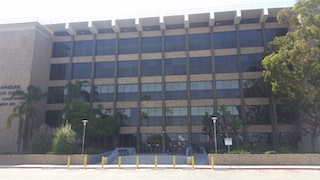What is the Official Records Hearsay Exception (EC § 1280)?
In a Nutshell: A document prepared by a government employee, i.e., a police officer or DUI lab worker, is hearsay, but admissible as an official record, an exception to the general hearsay rule, if four requirements are met. Read this article to understand a prosecutor may try to meet these four requirements.
- Act, condition of event. The public employee’s writing must be to record an act, condition or event and the record must be offered to substantiate the occurrence of the act, condition or event. Ev. Code § 1280. For example, the record cannot be considered an official record subject to the hearsay exception if it was produced in response to a prosecutor’s request for the documents. The writing must be characterized as a public or official record and be maintained as part of the regular functions of a departmental or governmental office by statute or by the nature of the duties of the office. See Pruett v. Burr (1953) 118 Cal.App.2d 188.
Scope of public employee’s duty. The document must be made or complied by and within the duty of the public employee. Evidence Code § 1280(a); People v. Ramos (1997) 15 Cal.4th 1133; see also Shea v. Department of Motor Vehicles (1998) 62 Cal.App.4th 1057 (holding that a forensic alcohol report prepared by an unsupervised trainee did not fall within the official records exception to the hearsay rule). It should be noted that there is a rebuttable presumption that an official duty has been regularly performed (Evid. Code § 664), but this presumption applies only when the public employee has an official duty to act. Furman v. Department of Motor Vehicles (2002) 100 Cal. App.4th 416. If the suspect can show that the public employee failed to properly record the events, then the 664 presumption does not apply and the official records exception would also not apply. People v. Martinez (2000) 22 Cal.4th 106; Murphey v. Shiomoto (2017) 13 Cal.App.5th 1052.
- Timeliness of the entry of the act, condition or event. The writing must be made at or near the time of the act, condition or event. Evidence Code § 1280(b); see Glatman v. Valverde (2006) 146 Cal.App.4th 700 (“memory is subject to erosion with every day that passes).
- Trustworthiness. The sources of the information for the entries in the writing and the method and time of preparation of the writing must indicate the trustworthiness of the writing. Evidence Code § 1280(c).
 Torrance Courthouse
Torrance Courthouse Greg Hill & Associates Home
Greg Hill & Associates Home




















